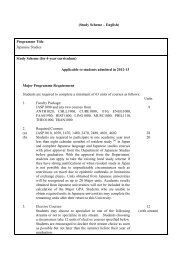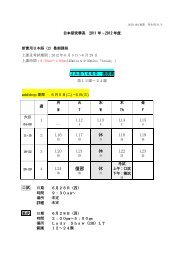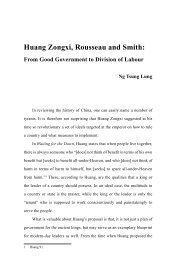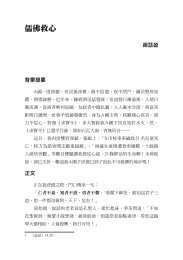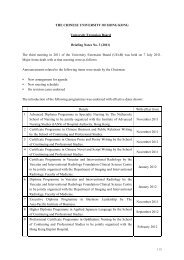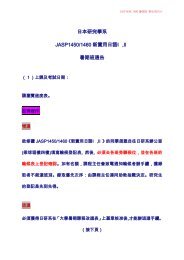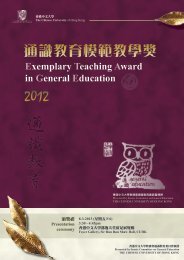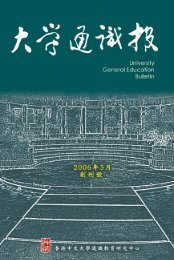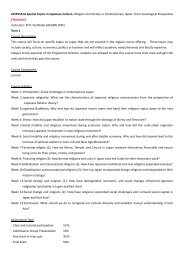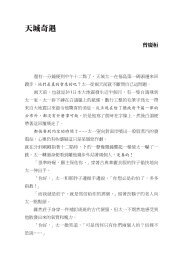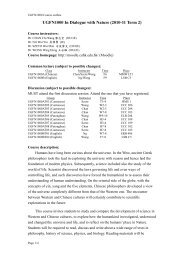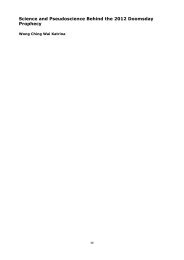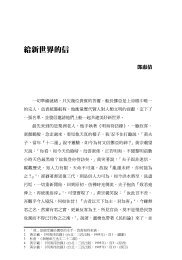ä¸è¼å ¨æ¸ - The Chinese University of Hong Kong
ä¸è¼å ¨æ¸ - The Chinese University of Hong Kong
ä¸è¼å ¨æ¸ - The Chinese University of Hong Kong
You also want an ePaper? Increase the reach of your titles
YUMPU automatically turns print PDFs into web optimized ePapers that Google loves.
Susan Gano-Phillips, Affective Learning in General Education 13<br />
Historically, affective learning goals, when they have appeared at all<br />
in course syllabi or program goals, have <strong>of</strong>ten been aspirational in nature.<br />
However, the confluence <strong>of</strong> reforms in <strong>Hong</strong> <strong>Kong</strong>’s higher education sector<br />
<strong>of</strong>fers an opportunity to move affective learning from a position on the<br />
periphery <strong>of</strong> education, to a more prominent position, by making affective<br />
learning goals assessable from an OBA framework and within GEPs. This<br />
may very well be the time for affective learning to take its rightful place<br />
alongside cognitive learning in <strong>Hong</strong> <strong>Kong</strong>’s higher education arena.<br />
<strong>The</strong> Role <strong>of</strong> Affective Learning Outcomes within General<br />
Education Programs (GEPs)<br />
GEPs <strong>of</strong>ten include affective learning goals. One way <strong>of</strong> thinking about<br />
GEPs and the courses that comprise them is that they are designed, at least<br />
in part, to help all students develop a favorable attitude toward learning in<br />
general. A quick perusal <strong>of</strong> the GEP goals that are emerging among institutions<br />
in <strong>Hong</strong> <strong>Kong</strong> reveals many affective learning statements relating to selfdirected<br />
learning, life-long learning, judgment and ethical reasoning, and<br />
civic responsibilities. This is not surprising, in light <strong>of</strong> the way that affective<br />
learning goals have pervaded GEPs in other parts <strong>of</strong> the world.<br />
In consultation with hundreds <strong>of</strong> U.S. higher education institutions,<br />
accreditation bodies, and employers, the Association <strong>of</strong> American Colleges<br />
and Universities (AAC&U) summarized four essential learning outcomes<br />
for 21 st century education: knowledge <strong>of</strong> human cultures and the natural<br />
world, intellectual and practical skills, personal and social responsibility,<br />
and integrative learning (Association <strong>of</strong> American Colleges and Universities,



